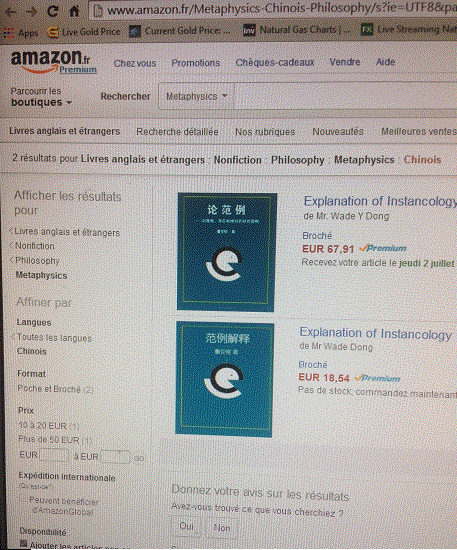Double None Negation: Mind and AA – Why We Cannot
Double None Negation: Mind and AA – Why We Cannot Question AA
— A Foundational Argument in Instancology
In the framework of Instancology, AA (Absolutely Absolute) serves as the foundational issuance point of all existence and cognition. The question often arises: Why can’t we question AA itself? This concern deserves a precise response—not from dogma, but from logical necessity rooted in ontological, epistemological, and existential grounds. Below are four reasons that explain why AA is not subject to questioning in the ordinary sense:
---
1. AA Is Undefinable
To “question” something presupposes a definable object—a concept with boundaries that can be examined, challenged, or negated. But AA, by definition, lies outside all categories. It is not an object among other objects, nor a being among beings. It cannot be grasped through contrast, framed by predicates, or described by attributes.
Any attempt to define AA immediately places it within the relative realm (AR or RR), thus stripping it of its Absolute character. Therefore, to question AA is to collapse it into a category, which is already a self-refuting act.
---
2. AA Is Not a Thing—Not Even “God”
In contrast to the traditional metaphysical idea of God—a supreme being with characteristics (omnipotence, omniscience, etc.)—AA is not a being at all. It is not “something,” not even the most powerful or infinite “something.” AA precedes the distinction between being and non-being.
To question AA as if it were a “thing” (even an ultimate thing) is to misunderstand its status entirely. AA is not comparable, not measurable, and not part of the structure it issues. This is not mysticism—it is logical rigor: no structure can define its own origin from within itself.
---
3. AA Is the Source of Reality Itself
Every instance, every category, every relation, and every question arises from AA—not in time, but ontologically. AA is the groundless ground of the entire 2×2 structure (AA, RA, AR, RR). It issues the full frame in which logic, time, space, mind, and language operate.
Thus, questioning AA is akin to questioning the possibility of reality itself. All inquiry assumes the presence of a world, a logic, and a context for the question to make sense. But these are issued from AA. Therefore, the act of questioning already relies on the reality that AA alone makes possible.
---
4. The Cartesian Parallel: To Deny AA Denies the Denier
Descartes famously argued that even in doubting everything, I cannot doubt that I exist. The very act of doubt proves the existence of the doubter. Similarly, in Instancology, to question AA is to presuppose the very reality that AA issues.
If AA did not “exist” (or better, did not issue reality), then neither would the one raising the question, nor the tools of language or logic used in the question. The questioner, in doubting AA, undoes their own reality, collapsing into self-contradiction. Therefore, AA is not just unquestionable—it is that without which the questioner cannot be.
---
Conclusion: Not Unquestionable by Force, But by Necessity
This is not a theological claim nor an appeal to sacred mystery. Rather, the impossibility of questioning AA is an epistemological and ontological necessity. AA is not above questioning because it is powerful, but because questioning itself arises only after AA has issued the conditions for thought, being, and discourse.
To question AA is to forget the ground on which questioning stands. In this sense, AA is the ultimate non-relative—not because it is hidden, but because it is prior to all that can be revealed.
---
Let me know if you'd like to format this for publication, slide presentation, or integrate with other sections of your book.
